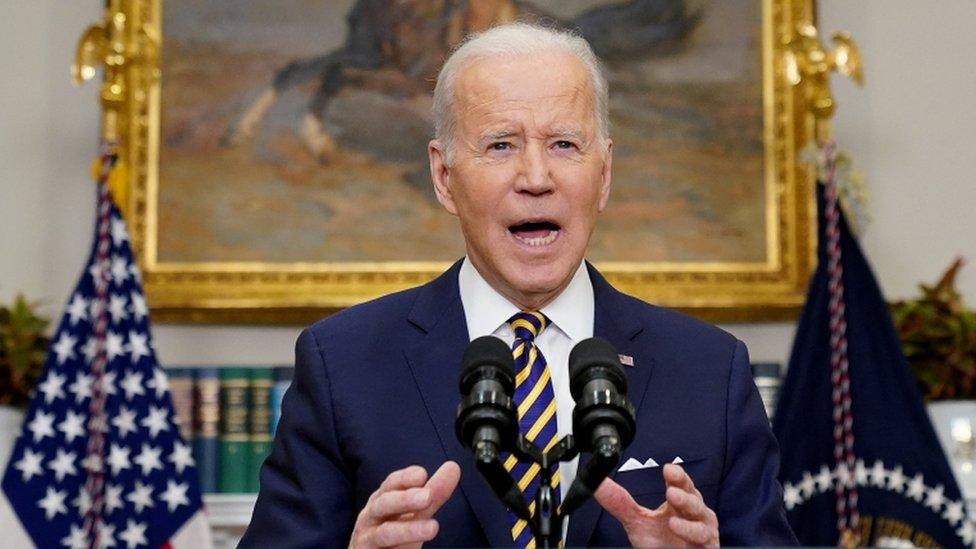War in Ukraine: US and UK announce ban on Russian oil
- Published
- comments

US President Joe Biden announces actions against Russia for its war in Ukraine
The US and UK are banning Russian oil after Russia invaded Ukraine last month.
President Joe Biden has confirmed a complete ban on Russian oil, gas and coal coming into the United States.
Selling oil and gas to other countries is a big part of Russia's economy.
He says the move means the "American people will deal another powerful blow" to Russian President Vladimir Putin's leadership. Despite growing worries about gas prices going up, the move has a lot of political support in the US.
The measures are meant to hurt Russia - which is the world's third biggest oil producer, behind Saudi Arabia and the US - but they are also likely to mean a rise in energy prices in the UK, the US and around the world.
What about the UK and European countries?
The UK government has said it will stop using Russian oil and oil products by the end of 2022.
This will give businesses more than enough time to replace Russian energy products, it said.
The European Union has also today made moves to lower its usage of Russian gas, saying it aims to cut its demand by two thirds by the end of the year.
The UK is uses less Russian fossil fuels than many European countries. But Russian supplies still make up 8% of overall imports into the UK.
How has Russia reacted?
Russian gas flows through pipelines across eastern and central Europe
Russia earlier warned it may close its main gas pipeline to Germany if nations go ahead with a ban on Russian oil.
Germany is especially reliant on Russian gas, so it is vulnerable to any restrictions.
In an address on state television, Russia's Deputy Prime Minister Alexander Novak said it would be "impossible to quickly find a replacement for Russian oil".
"It will take years, and it will still be much more expensive for European consumers. Ultimately, they will be hurt the worst by this outcome," he said.
- Published8 March 2022
- Published8 March 2022
- Published5 March 2022
